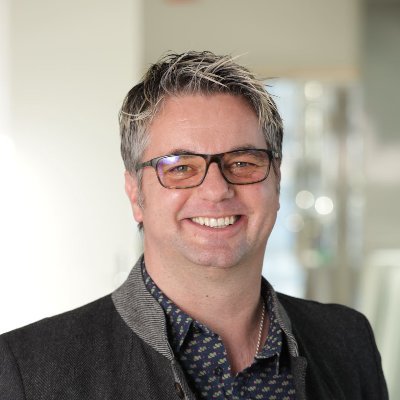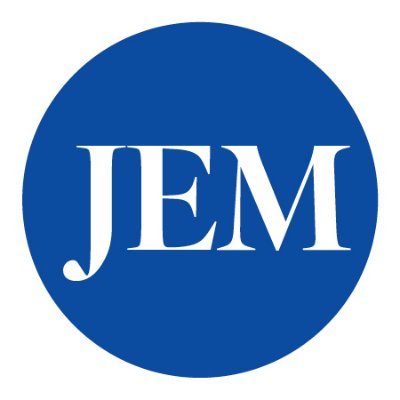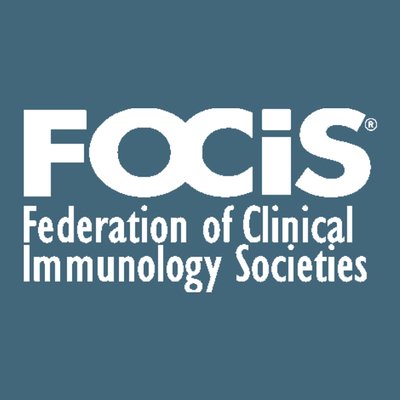
Mark Anderson
@MAndersonUCSF
Followers
646
Following
288
Media
3
Statuses
183
Professor, University of California, San Francisco Director, Diabetes Center at UCSF @AtUcsf President, Fed of Clinical Immunology Societies @FOCISimmunology
San Francisco, CA
Joined March 2020
LUCKY when one can combine work with friendship. I am very lucky @ucsfhealth w. friends @immunox @UCSFAging & friendly relationships with @UCSF leadership. Excited how this "group of friends" imagined a 2017 dream & very grateful to Bakar family and others to make this reality.
2
1
14
Early in the pandemic, kids were hospitalized with a mysterious disease, MIS-C. A team led by @DrAaron14 @MAndersonUCSF @czbiohub discovered how mild COVID led to MIS-C, hinting at what might go wrong in autoimmune diseases like #MS. @BCH_InTheNews @stjude
https://t.co/MNJTXkhd37
2
12
37
Scientists Get to the Bottom of COVID’s Worst Pediatric Complication
0
4
14
Proud of our team that unlocked this terrible complication of COVID-19 in children. @AtUcsf @UCSF @immunox
https://t.co/cDBFrRYvLh
nature.com
Nature - A cross-reactive antibody and T cell response is identified in a large portion of patients with multisystem inflammatory syndrome in children.
0
17
54
Congrats to our team in the UCSF Diabetes Center!
Microglia can be manipulated to impact CNS control of weight gain and glucose control. But what do hypothalamic microglia do? We now explore this in newborn mice, with fascinating results. Congrats to @MValdearcos and our outstanding team! @AtUcsf @NorcUcsf @UCSF
0
0
6
Insights: @DrCindyMa & @stutangye discuss new study from @MACattackLab ( https://t.co/4LLX8joriS) that proposes a role for dysregulated IL-22 production by Th17 cells in causing some aspects of immune-mediated skin inflammation in #STAT3GOF syndrome. https://t.co/oFtMQJ4cjs
0
3
12
Great piece on all of the excitement around Ozempic and GLP-1 agonists. Great job Suneil!
Weight loss drug article in @UCSF Magazine featuring UCSF Diabetes Center professor and Chief of Endocrinology @SuneilKoliwad
https://t.co/Qz9Tp9WKVU
0
0
3
Honored and thrilled for this recognition
UCSF Diabetes Center Director Mark Anderson Receives 2024 Cancer Research Institute Coley Award @MAndersonUCSF @CancerResearch
https://t.co/pHliUajTeH
9
5
40
Excited to share new collaborative work on the autoreactome that just came out in JCI https://t.co/4wJsiWVhZe
1
3
12
"Decoding gene regulation with CRISPR perturbations" by @McManus_Lab postdoc Stefan Oberlin published in @NatureBiotech
1
5
17
Excited to share some new collaborative work with the Kappler lab on how thymic tolerance to insulin is maintained in a model of T1 Diabetes. Aire mediates tolerance to insulin through thymic trimming of high-affinity T cell clones | PNAS
0
3
17
Excited to be part of a team that identified a rare family with a defect in PDL1 that has a strong link to type 1 diabetes and other immune dysregulation.
1
6
47
Finalize & Submit your abstract ahead of time ✔️ There's only 3 days remaining to submit your research and be a part of the FOCIS 2024 Annual Meeting! Don't wait - submit today ⏳: https://t.co/m2pdB6hPDI
0
4
2
Congrats to Mianmian and Tony on this important collaborative work on thymic selection of autoreactive T cells! Tracking the role of Aire in immune tolerance to the eye with a TCR transgenic mouse model | PNAS
pnas.org
Roughly one-half of mice with partial defects in two immune tolerance pathways (AireGW/+Lyn−/− mice) spontaneously develop severe damage to their r...
0
4
13
Congrats to Elze and our team that have developed a new powerful tool to assess the specificity of autoimmunity in mouse models. @AtUcsf @immunox @UCSF
https://t.co/n47EokLTye
1
4
15
Ready for a masterpiece! Jointly led by Drs. @anne_puel, Jean-Laurent Casanova (@casanova_lab), @MAndersonUCSF, and Luigi Notarangelo, this @Nature study talks about autoantibodies against type I IFNs in humans with alternative NF-κB pathway deficiency. https://t.co/4xMgv7euVA
2
3
21
Congrats to @Tang_Lab_UCSF Postdoc Roberto Castro Gutierrez for being named a 2024 @CIRMnews Scholar
1
1
9
Excited to share new collaborative work in Nature on the genetic underpinnings of COVID susceptibility that is linked to a defect in the thymus. Great thanks to my colleagues in the Casanova, Puel, and DeRisi labs! @AtUcsf @immunox @UCSF
https://t.co/GYbe6zBk4j
nature.com
Nature - Inborn errors of the alternative NF-κB pathway in humans impair the development of AIRE-expressing medullary thymic epithelial cells, thereby underlying the production of...
3
10
53
Congrats to the Waterfield lab on this newly identified regulator of thymic tolerance.@AtUcsf @UCSF Ikaros is a principal regulator of Aire+ mTEC homeostasis, thymic mimetic cell diversity, and central tolerance | Science Immunology
science.org
Ikaros controls medullary thymic epithelial cell development, tissue-specific antigen gene expression, and central tolerance in mice.
3
14
54











